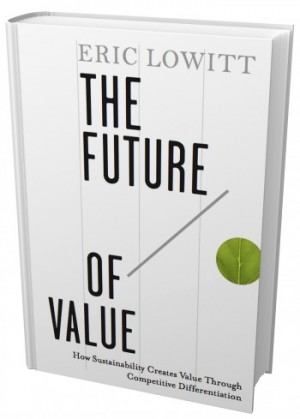Companies striving for sustainable outcomes outperform their competition in nearly every financial measure. And most importantly in this case, stock performance.
Canadian publisher Corporate Knights recently published its 8th annual list of "100 Most Sustainable Companies." According to the Corporate Knights Global 100 website:
The graph below measures the monthly total return of the Global 100 and the MSCI All Country World Index (ACWI) in USD from February 1, 2005 to November 30, 2011. Over this period, the Global 100 returned 42.54% compared to 29.52% for the MSCI ACWI.

There are a host of activities and decisions that lead to a company becoming more sustainable. They are embedded in the culture and the inner workings of every organization on this path. However, a commitment to long term thinking and a passion for efficiency are critical. The same tools that are used in quality management systems and Lean Six Sigma are the ones that are used in achieving greater sustainability.
In the end, sustainability is about eliminating waste (whether that is wasted human potential or wasted natural resources) while meeting all stakeholder needs and expectations. By being ever more efficient in meeting needs we eliminate waste as a by product. If we combine that discipline with an eye towards sustainability, the two are a killer combination.
Better products, better communities, better planet, and better financial performance.
To see a great summary of the index you can read an excellent article by journalist Marc Gunther here. To see a how the number one ranked company, Novo Nordisk achieved such great results go here.
To see the entire methodology and listing, go to the website of the Global 100 Index here: http://global100.org/index.php

 Energy reduction is not as difficult as we initially believe it will be. Our mental models are a bigger problem than getting it done.
Energy reduction is not as difficult as we initially believe it will be. Our mental models are a bigger problem than getting it done.
 In today's podcast we hear a great story from Eric Lowitt about how he is following his dreams and helping move sustainability forward in the business sector. I can't wait to get my hands on his new book "The Future of Value" when it comes out in late September.
Eric has a passion for sustainability that is unstoppable. He also has that rare set of business experience and real world school of hard knocks that makes his story great. We'll hear what seperates his book from the others and what his clients are doing to become more sustainable.
In today's podcast we hear a great story from Eric Lowitt about how he is following his dreams and helping move sustainability forward in the business sector. I can't wait to get my hands on his new book "The Future of Value" when it comes out in late September.
Eric has a passion for sustainability that is unstoppable. He also has that rare set of business experience and real world school of hard knocks that makes his story great. We'll hear what seperates his book from the others and what his clients are doing to become more sustainable.